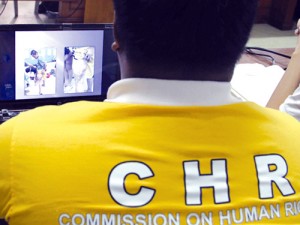The convictions of a few rights violators in recent years have sparked hope that the Philippines’ human rights record may be improving, but the government is facing the challenge of achieving more radical progress to secure increased military support from its long-term ally, the United States.
The US Congress continues to impose a limit on military aid to the Philippines due to the country’s failure to stop extrajudicial killings and send violators to jail.
In its 2013 Country Reports on Human Rights Practices, the US State Department said extrajudicial killings and enforced disappearances undertaken by security forces are the most significant human rights problems in the Philippines.
Impunity persists because the government lacks “sufficient mechanisms to investigate and punish abuse and corruption in the Philippine National Police (PNP) and Armed Forces of the Philippines (AFP),” the report said.
While cases of human rights violations perpetrated by government troops have been investigated, very few ended in convictions because majority of these cases were dismissed, it said.
Limited prosecutions
“The government continued to investigate and prosecute only a limited number of reported human rights abuses, and concerns about impunity persisted,” it added.
“From January to October, the Office of the Ombudsman, an independent agency responsible for investigating and prosecuting charges of public abuse and impropriety, received 306 cases involving military and law enforcement officers accused of committing human rights abuses.
The cases included killings, injuries, unlawful arrest, and torture. Most were filed against low-ranking police and military officials.
As of October, 302 cases were dismissed due to insufficiency of evidence, and eight were under investigation.
No convictions against high-ranking police or military officials were recorded,” the report, released on Saturday, said.
The department listed other factors that allowed human rights violations to continue, such as a dysfunctional criminal justice system notable for poor cooperation between police and investigators, few prosecutions, lengthy procedural delays and widespread official corruption and abuse of power.
As of July last year, the PNP Directorate for Personnel and Records Management reported 28 administrative cases filed against 56 police personnel for human rights violation.
Criminal proceedings were initiated against 138 police personnel accused in 102 cases, and 101 were referred to the Prosecutors’ Office while one case was filed in court, the report said. Officials dismissed at least 15 police personnel for various administrative and criminal offenses as of August.
Last month, 10 policemen in Binan, Laguna province were suspended after their “roulette torture” system was uncovered. Victims said that police officers spun a “roulette” wheel to pick what torture will be meted out. If the arrow points to “Manny Pacman”, a policeman would punch an inmate for 20 seconds.
“It’s clear to me that extrajudicial killings remain foremost among the human rights challenges in the Philippines,” US Ambassador to Manila Philip Goldberg said.
He added that he was “encouraged by the Philippines’ recent extrajudicial killings convictions.”
There were only three such convictions last year, according to the report, reflecting the need for Aquino’s administration to step up efforts to bring perpetrators of killings and other abuses to justice.
The State Department also expressed concern over overcrowded and inadequate prison conditions; killings and harassment of journalists; internally displaced persons (IDPs); violence against women; abuse and sexual exploitation of children; and trafficking in persons.
Limited access to facilities for persons with disabilities; lack of full integration of indigenous people; absence of law and policy to protect persons from discrimination based on sexual orientation and gender identity; suspected vigilante killings; child labor; and ineffective enforcement of worker rights were also a concern.
The State Department is mandated by the US Congress each year to provide a detailed report on the status of human rights in more than 100 countries to help the US government assess its policy and foreign assistance.
Separatist insurgencies
The report also noted that long-running Muslim separatist and communist insurgencies continued to result in the displacement of civilians and the killing of soldiers and police in armed clashes.
Terrorist organizations such as the Abu Sayyaf Group, Jemaah Islamiyah, and the New People’s Army, as well as elements associated with the separatist Moro Islamic Liberation Front, including the breakaway Bangsamoro Islamic Freedom Fighters continue to kill security forces, local government officials, and other civilians, according to the report. The Moro National Islamic Liberation Front (MNLF) also conducted military operations against government security forces and civilians.
PNA, AFP


